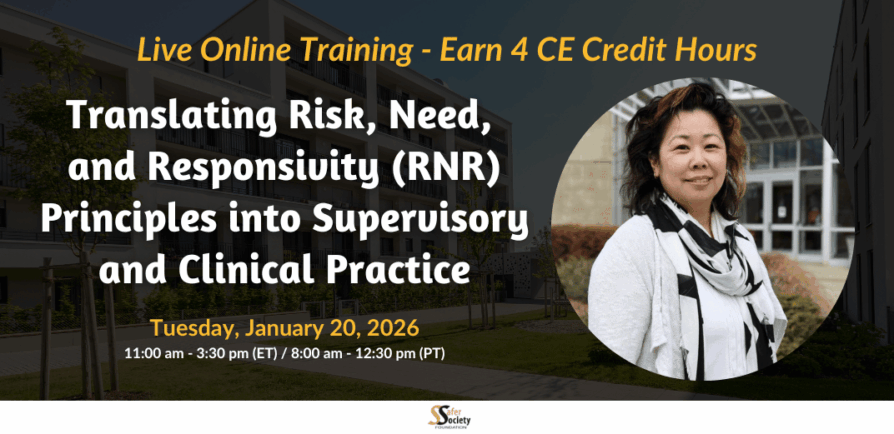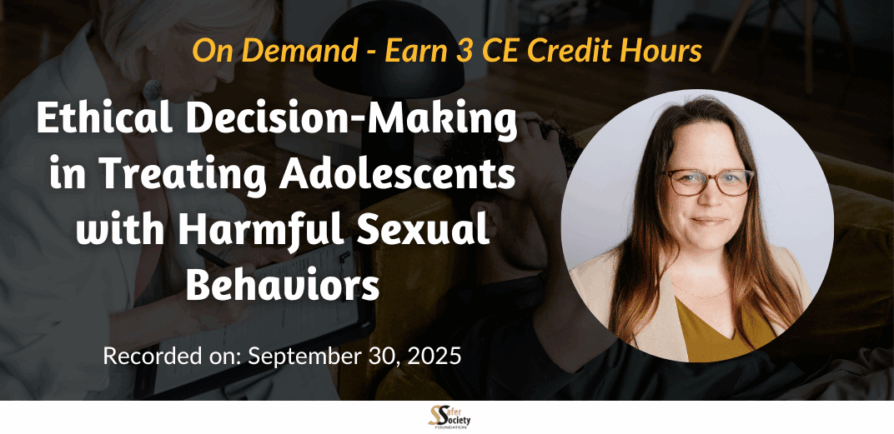Client self-disclosure of personal history is essential to assessment, treatment, and the development of effective plans for preventing further harm to others. Steven Sawyer, MSSW, LICSW, ATSA-F developed this training to offer methods for helping clients to explore their life experiences, including the use of a structured workbook called Your Personal History.
Identifying Above-Average Risk Clients Who Are More Likely to Succeed in the Community
This webinar focuses on Dr. Sandler’s newest research findings regarding the factors that predict which above-average risk individuals would likely succeed in the community on a supervision and treatment order.
Ethical Decision-Making in Treating Adolescents with Harmful Sexual Behaviors
In this training, Ms. Pryor explores the ethical tensions that arise between treatment providers and the criminal justice system—each with their own goals and approaches. She discusses strategies for aligning therapeutic interventions with both legal requirements and ethical standards, and reviews relevant ethical codes to support effective and principled clinical decision-making.
Domestic Violence Awareness Month: Supporting Survivors Through Effective Intervention with Those Who Cause Harm
As October approaches and we prepare for this year’s annual Domestic Violence Awareness Month (DVAM), the theme “With Survivors, Always” calls on us to display unwavering solidarity with those who have experienced intimate partner violence (IPV). This commitment to safety, support, and solidarity is vital. A recent training on the CARE Method for treating those responsible for domestic violence suggests something else we need to bear in mind: We cannot fully support the victims of IPV without also effectively treating those who caused the harm. As CARE Method founder Nil Buckley emphasized throughout her training, “If we’re not doing treatment for offenders effectively, we’re not reducing recidivism, and we are not increasing victim safety.”
Our Safe Haven: Navigating the Complexities of Group Therapy with Individuals Who Have Harmed Others
In these Our Safe Haven sessions, we invite you to join Steven Sawyer and David Prescott to explore the complexities of group intervention, from addressing denial and minimization to managing difficult group dynamics and safeguarding the wellbeing of clinicians. Each session begins with a focused theme, evolving naturally into an engaging, attendee-driven conversation shaped by shared experiences and professional insights.
Our Safe Haven: Navigating Sexuality Beliefs When Working with Individuals Who Have Engaged in Nonconsensual Sexual Behaviors
Available Sessions:– Session 01: Let’s Talk Shame Around Sexuality and Sex – October 8, 2025, from 3:00 pm to 4:00 pm ET– Session 02: Let’s …









